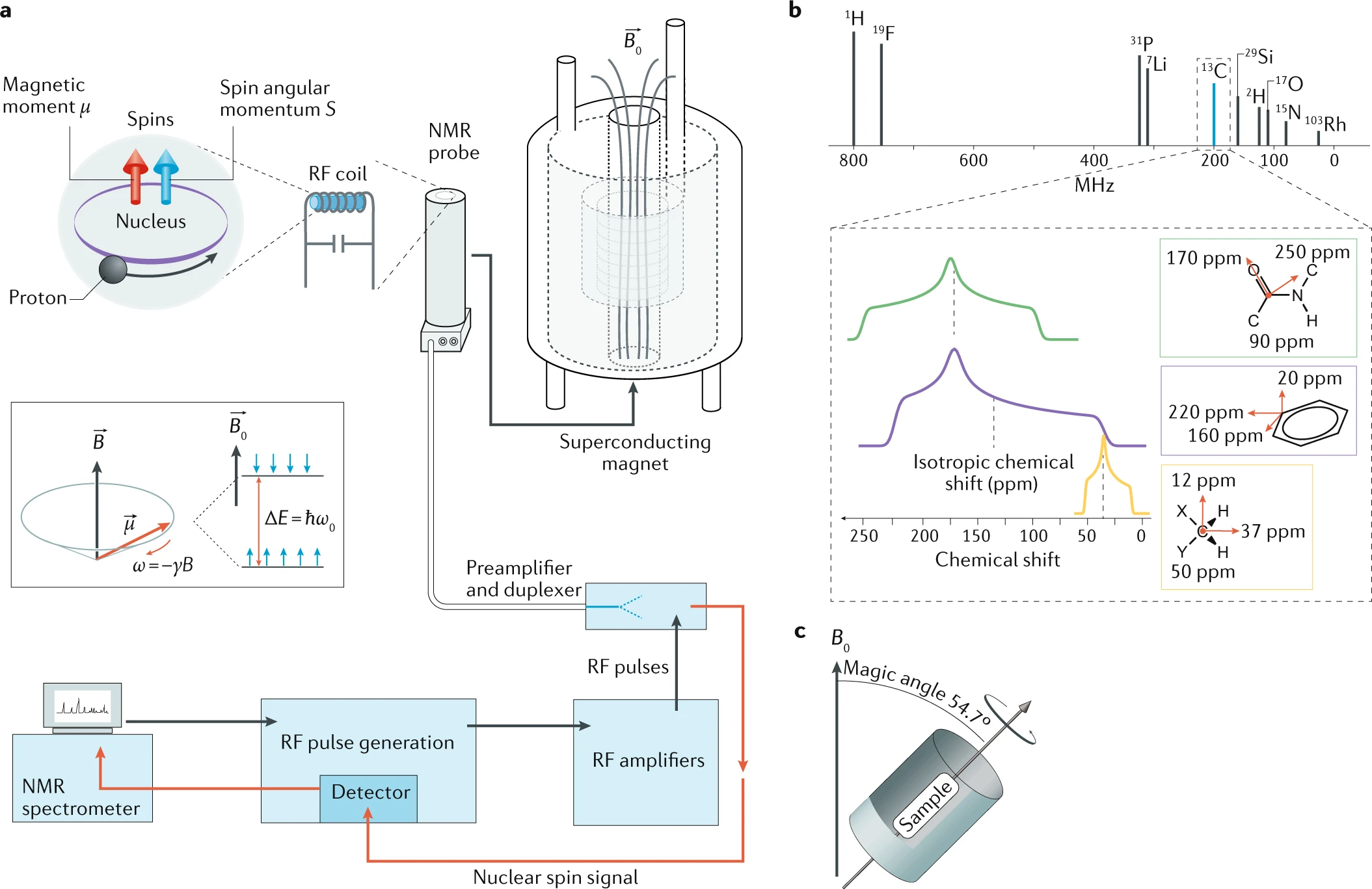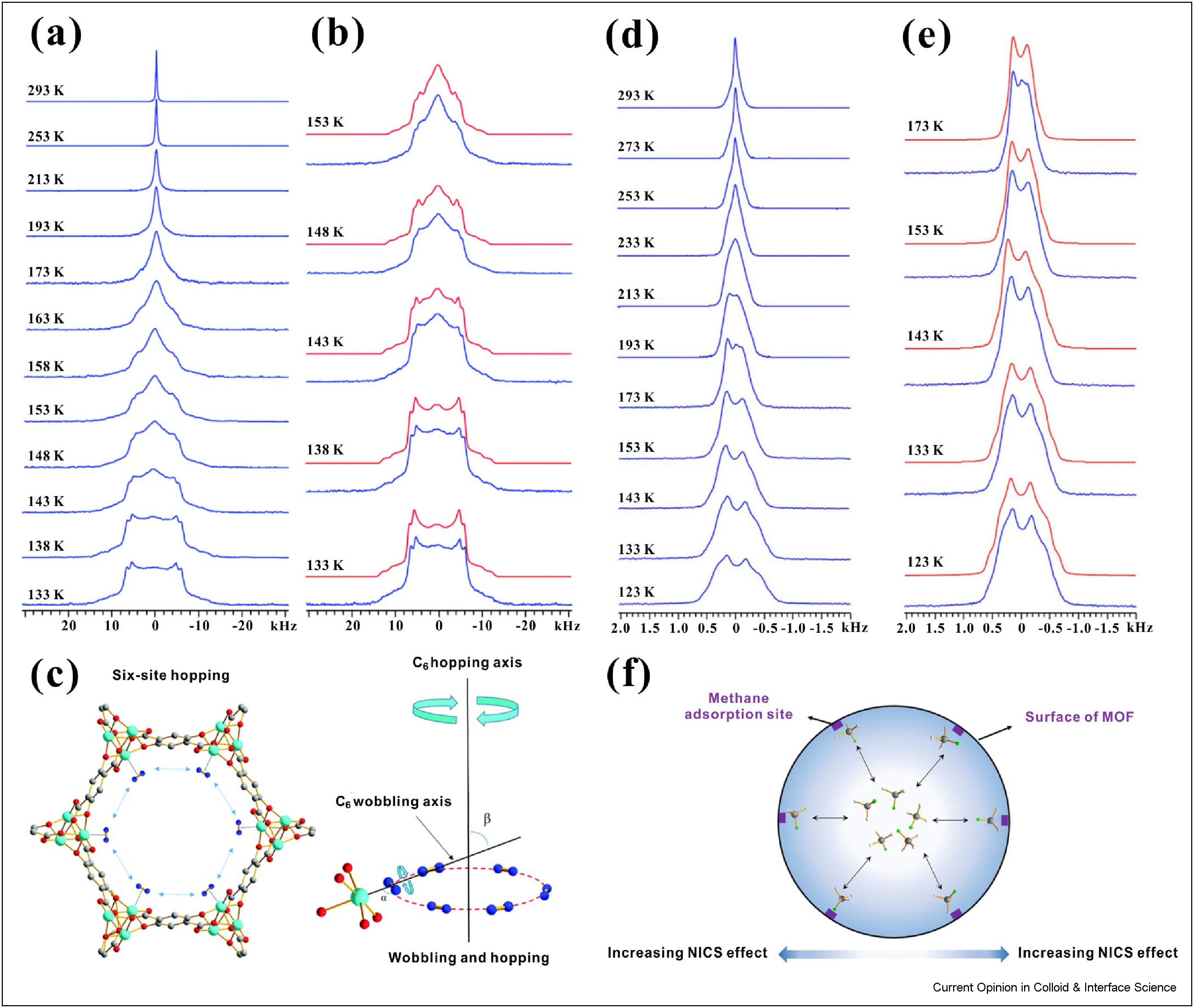Solid-State NMR Testing Service
Solid-state NMR testing is a high-resolution analytical technique specifically designed to analyze molecular structure and dynamic behavior in solid samples, such as powders, films, polymers, and biomaterials. The principle is based on nuclear magnetic resonance (NMR) technology, which utilizes radiofrequency pulses and magic angle spinning (MAS) to capture interactions between atomic nuclei without destroying the sample. This allows for the acquisition of critical information on molecular structure, bonding states, conformational changes, molecular motion, and intermolecular interactions.
Solid-state NMR testing service is widely used in polymer structural analysis, pharmaceutical polymorphism and crystalline form studies, molecular dynamics analysis of amorphous and crystalline materials, structural characterization of biomacromolecules (such as proteins, membrane proteins, and nucleic acids), as well as functional group identification and component analysis in functional materials. Solid-state NMR is a vital tool for understanding the relationship between the microstructure and properties of solid materials, making it suitable for in-depth research in materials science, pharmaceutical chemistry, structural biology, and energy chemistry.

Reif, B. et al. Nature Reviews Methods Primers, 2021.
Figure 1. Basics of Solid-State NMR Spectroscopy for Structural Analysis of Biomolecules and Materials.
Services at MtoZ Biolabs
Based on a high-field solid-state NMR spectrometer platform and integrating techniques such as Magic Angle Spinning (MAS) and Cross Polarization (CP), the solid-state NMR testing service provided by MtoZ Biolabs enables high-resolution analysis of nuclei such as hydrogen (¹H), carbon (¹³C), nitrogen (¹⁵N), and phosphorus (³¹P) in solid samples. The service includes sample preparation, spectral acquisition, chemical shift interpretation, and structural assignment, ensuring structural and dynamic data with excellent resolution, reproducibility, and quantitative accuracy. It is broadly applicable to polymorphism analysis, functional material studies, and structural characterization of biomacromolecules.
Service Advantages
1. Suitable for Insoluble Samples
Solid-state NMR allows direct analysis of samples that are insoluble or poorly soluble in conventional solvents, such as polymers, amorphous solids, protein crystals, and bone materials, overcoming the limitations of traditional solution NMR.
2. High-Resolution Structural Analysis
By combining techniques such as Magic Angle Spinning (MAS) and Cross Polarization (CP), this method significantly enhances spectral resolution and signal intensity, enabling accurate information on chemical shifts, molecular conformations, and local structural environments.
3. Support for Multi-Nucleus Detection and Quantitative Analysis
Capable of detecting multiple nuclei such as ¹³C, ¹⁵N, ³¹P, and ²⁹Si, this method offers strong quantitative capabilities, suitable for studies on elemental distribution, functional group structures, and molecular interactions.
4. Standardized Workflow and High Reproducibility
MtoZ Biolabs implements standardized experimental procedures and a rigorous quality control system to ensure accurate, reliable data and highly consistent results, meeting the demands of both research and industrial analysis.
Applications
1. Polymer Material Structure Characterization
Solid-state NMR testing service is widely used for microstructural analysis of polymers such as plastics, rubber, and resins. It can reveal information on branching degree, crosslinking density, and crystalline/amorphous structure distribution.
2. Solid-State Drug Characterization and Polymorphism Analysis
This service is suitable for identifying crystalline forms, confirming amorphous states, and studying molecular dynamics of solid active pharmaceutical ingredients (APIs), supporting quality control and stability assessment during drug development.
3. Inorganic and Mineral Material Research
Solid-state NMR testing service can be used to analyze structural units (such as SiO₄, PO₄, etc.) in inorganic materials including cement, ceramics, glass, and catalysts, helping to reveal their structural composition and reaction mechanisms.
4. Biological Solids and Natural Product Research
Solid-state NMR plays a significant role in the structural analysis of natural solid biological materials such as cell walls, bone tissue, starch, and protein fibers, enabling investigation of molecular arrangement and interaction patterns.
Case Study
1. Solid-State NMR Studies of Host–Guest Chemistry in Metal-Organic Frameworks
This study aimed to elucidate the molecular mechanisms of host–guest interactions within metal-organic frameworks (MOFs) using solid-state nuclear magnetic resonance (NMR) spectroscopy. The research focused on a variety of structurally well-characterized MOFs and their adsorbed organic molecules or gas-phase guest species. By employing multinuclear solid-state NMR techniques—including ¹³C, ¹H, and ¹⁵N—alongside cross polarization (CP), magic angle spinning (MAS), and two-dimensional correlation spectroscopy, the study systematically analyzed the binding states, spatial distribution, and interactions of guest molecules within MOF pores. The results demonstrated that different types of host–guest binding modes exhibit characteristic chemical shifts and coupling patterns in the NMR spectra, and that the nature and concentration of guest species significantly influence the local environments of the MOF frameworks. The study concluded that solid-state NMR is a powerful tool for probing host–guest recognition and binding behavior at the molecular level, providing essential structural insights for the rational design and application of MOFs in gas storage, catalysis, and separation technologies.

Xiao, X Q. et al. Current Opinion in Colloid & Interface Science, 2022.
Figure 2. The Static VT 2H NMR Spectra of D2 on Mg-MOF-74.
FAQ
Q1: What Types of Samples Are Suitable for Solid-State NMR?
A1: Solid-state NMR is suitable for solid samples that are insoluble or poorly soluble in conventional solvents, including crystalline and amorphous materials, powders, films, biopolymers, polymers, metal-organic frameworks (MOFs), catalysts, and solid-state forms of pharmaceutical compounds.
Q2: What Is the Difference between Solid-State NMR and Solution NMR?
A2: Solid-state NMR does not require the sample to be dissolved, making it ideal for insoluble or crystalline materials. It is better suited for studying local structures, heterogeneity, and amorphous regions in materials. However, it typically has lower sensitivity than solution NMR and involves more complex signal processing.
How to order?







